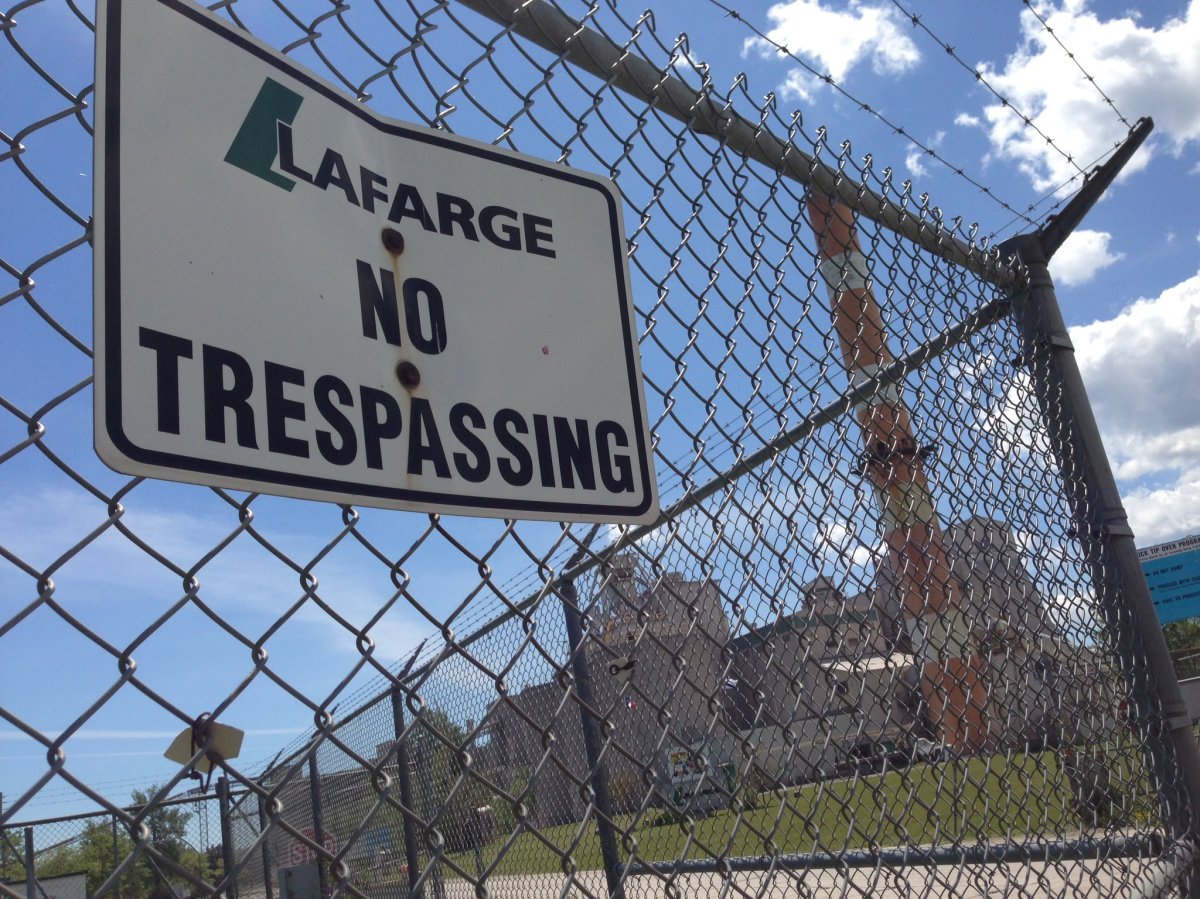A Nova Scotia judge has dismissed a bid by residents of a small community for a judicial review of the province’s decision to allow a cement plant to burn tires as fuel.

In a written decision, Justice James Chipman of the provincial Supreme Court says the environment minister’s approval of a tire burning project at the Lafarge cement plant in Brookfield, N.S., was reasonable.
READ MORE: Group gathers to protest Nova Scotia plan to burn tires
He says the approval process involved the consideration and evaluation of risks, and that the minister was satisfied that any adverse effects or significant environmental affects could be adequately mitigated.
The court challenge, launched by five residents that live near the Colchester County cement plant, claimed that the Nova Scotia government’s approval of the project violated its Environment Act.
The application for judicial review stated that Environment Minister Iain Rankin didn’t properly assess the impact of emissions from the Lafarge plant on surrounding areas, including the risk of “strong potential for adverse effects” on surface water, human health and wildlife from the project.
WATCH: Lafarge defends pilot program to burn tires in Nova Scotia

Lafarge plans to burn about 20 tonnes of tires a day – up to 5,200 tonnes a year – in place of fossil fuels such as coal and petcoke used to manufacture Portland cement, a basic ingredient of concrete.
- Green Party deputy leader given jail sentence for Fairy Creek old growth protests
- More financial institutes are offering crypto-services, survey shows
- Singh mulls TikTok return as U.S. nears potential ban over security fears
- EV sales in Canada rose in recent years despite higher interest rates. Why?



Comments